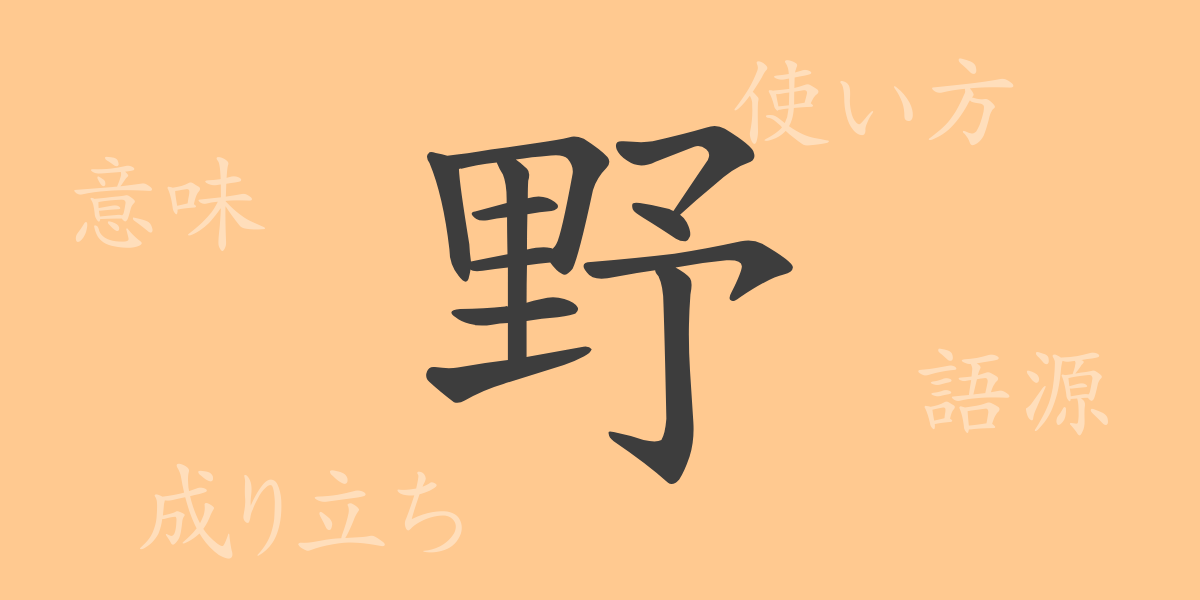Japanese culture and language are deeply rooted in thousands of years of history. Among them, 常用漢字(jouyou kanji) are an integral part of the daily lives of the Japanese people, with each character rich in meaning and history. The kanji 野(no) evokes a sense of nature and expansiveness and is frequently used in Japanese life. In this article, we will delve into the origins of 野(no), its meanings and uses, and the idioms and proverbs that feature this character.
The Origin (語源) of 野(no)
The origin of the kanji 野(no) dates back to ancient China. It was used to represent open land, such as fields and paddies that had not been cultivated. The character is composed of the upper part 予(yo), symbolizing 里(ri) (village), and the lower part 土(do), meaning soil. This combination represents the natural land extending beyond the inhabited areas, referring to the open spaces surrounding village settlements.
The Meaning and Usage of 野(no)
In modern Japanese, 野(no) often refers to natural land, countryside, or untouched areas. It is also used in sports terminology, such as 野手(yashu) for a baseball fielder and フィールドプレイヤー(fiirudopureiyaa) for a soccer field player. Additionally, 野(no) is widely used metaphorically to express ambitious aspirations, as seen in terms like 野心(yashin) (ambition) and 野望(yabou) (aspiration).
Reading, Stroke Count, and Radical of 野(no)
Let’s take a look at the readings, stroke count, and radical of the kanji 野(no).
- Reading: The 音読み(onyomi) is “ヤ(ya)” and the 訓読み(kunyomi) is “の(no)”.
- Stroke Count: It has a total of 11 strokes.
- Radical: The radical is 里(ri).
Idioms, Phrases, and Proverbs Featuring 野(no)
There are numerous idioms, phrases, and proverbs in Japanese that include 野(no). For example, 野心(yashin) means a big ambition, 野望(yabou) signifies a strong desire to achieve something, 野党(yatou) refers to an opposition party, and 野放し(nobanashi) means to leave something uncontrolled. A proverb such as “野に下るは盗人を捕らえんと欲す” (no ni kudaru wa nusubito o toraen to hossu) emphasizes the importance of adapting one’s actions according to the situation.
Conclusion on 野(no)
The kanji 野(no) plays a significant role in our language, evoking a sense of nature and expansiveness. From its origins to its modern meanings and the idioms and proverbs that feature it, 野(no) showcases the depth of the Japanese language. This single character offers a glimpse into Japan’s nature, culture, and people’s thoughts. As a 常用漢字(jouyou kanji), 野(no) is indispensable in our daily lives, and we should continue to cherish its world.

























